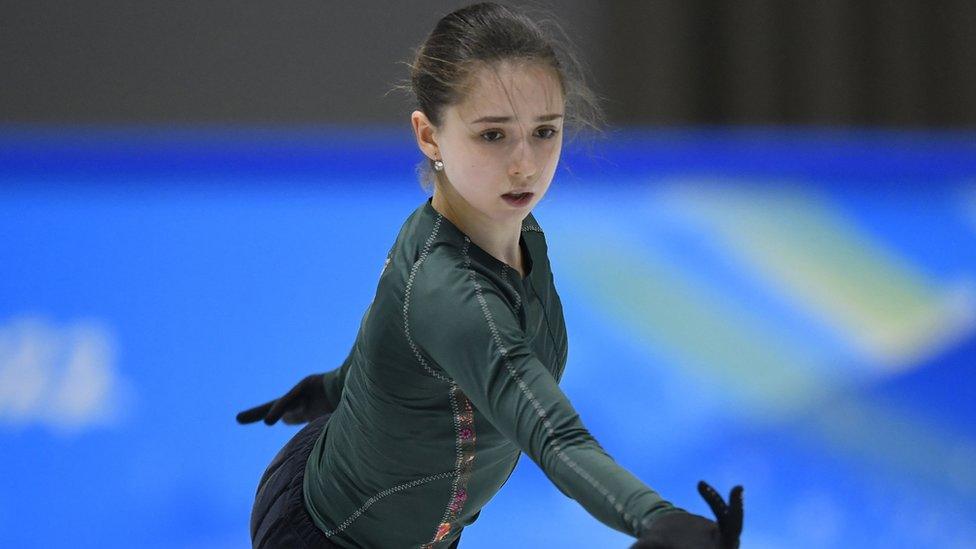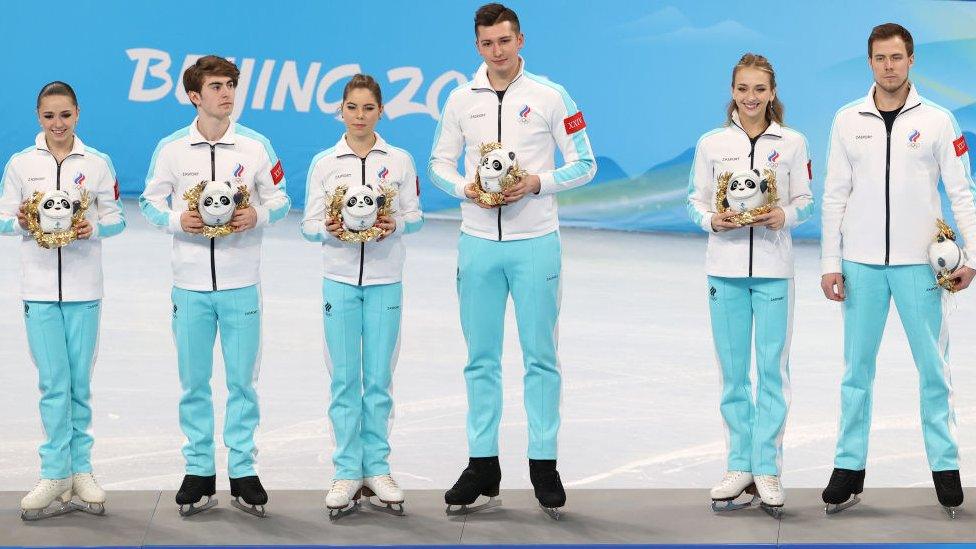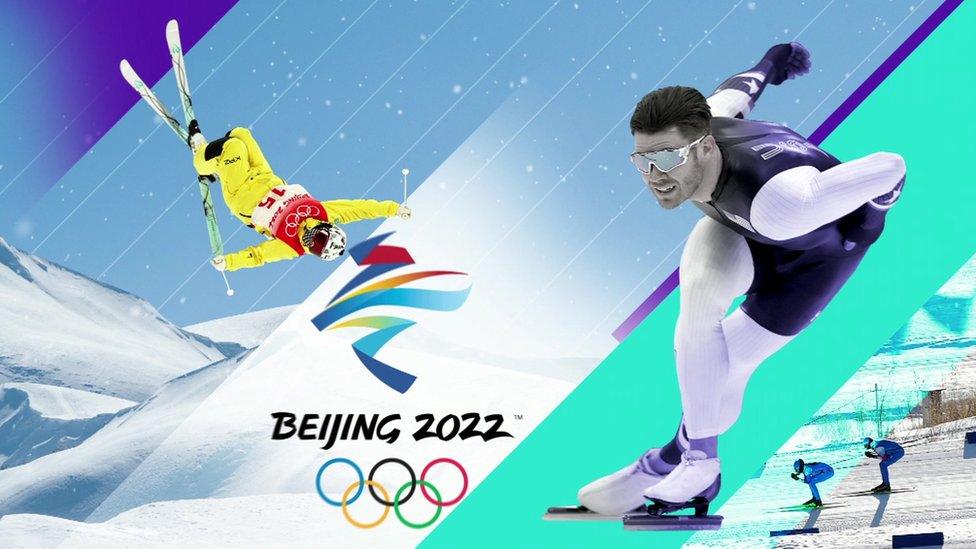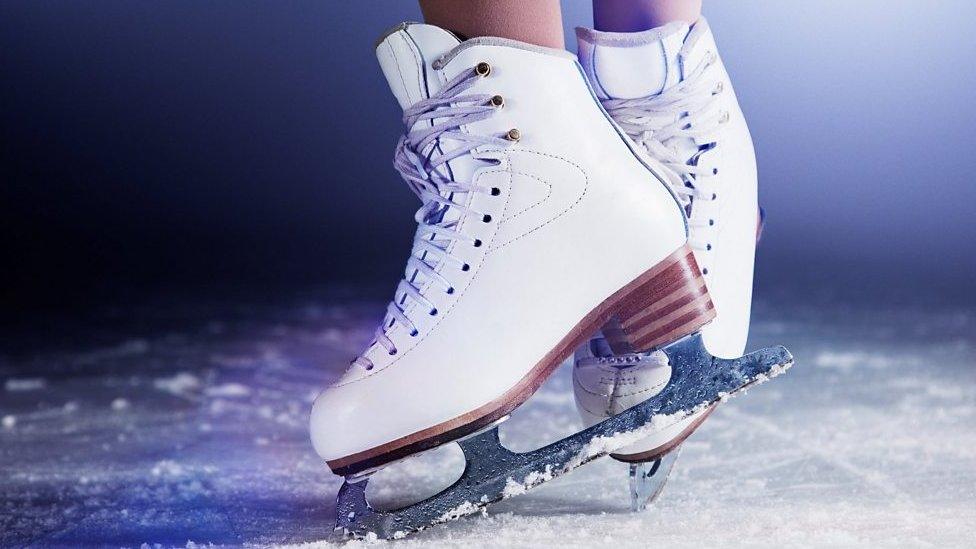Winter Olympics 2022: Urgent hearing to decide if 15-year-old can continue competing in Beijing
- Published
- comments

Kamila has been seen training in public whilst awaiting the result of the hearing
An urgent hearing will decide whether 15-year-old skater Kamila Valieva will be able to carry on taking part in the Beijing Winter Olympics.
The International Testing Agency (ITA), which is in charge of the anti-doping programme at the Winter Olympics, confirmed reports that Valieva failed a drug test from a sample collected in December.
The result of the test was only reported on 8 February, the day after she won team gold, but before the medal ceremony for it had taken place.
The medal ceremony for the team event has been delayed and it is yet to be announced when it will take place.
Valieva was the first ever female skater to land a quadruple jump at a Winter Olympic games and helped her team - the Russian Olympic Committee - win gold, beating the United States and Japan.
Athletes' blood and wee are tested by scientists for performance-enhancing drugs, to make sure that sporting competitions are fair.
'Doping' is when athletes are found to have banned drugs in their blood or wee to improve their performance, which gives them an unfair advantage in sport. That's not allowed.

The Russian Olympic Committee ice skating team celebrate during the Team Event flower ceremony - though their medal ceremony has been delayed
What happened?
Valieva tested positive for a drug called trimetazidine, which is a legal drug given to people with heart problems, but it is on the banned list for athletes because it has been proven to help the heart work better which could improve an athlete's performance.
Valieva was provisionally suspended but challenged the decision and Rusada, which is the Russian Anti Doping Agency, agreed to lift the suspension on 9 February.
This decision meant that Valieva was able to continue skating at the Beijing Games.
The International Olympic Committee (IOC) has now appealed against the decision by Rusada to lift the ban.
So has the International Skating Union, which has asked the Court of Arbitration for Sport (Cas) - an organisation which settles arguments in sport, a bit like a headteacher of the sporting world - to put Valieva's provisional suspension back in place.
What's next?
Cas will now hear the case and it will decide whether Valieva can continue to compete at the Winter Olympics.
Her next event is due to be the women's individual event, which begins on 15 February and Valieva is the favourite to win the gold medal.
While the situation is going on, Valieva has been seen training at the Capital Indoor Stadium in Beijing.
Mark Adams, from the IOC - which is in charge of the Olympic Games - said he wanted a resolution "as quickly as possible", adding the medals for the team event will not be awarded until the outcome of the Cas hearing.
Previous doping
This isn't the first time that Russia has been in trouble for its athletes failing drugs tests.
Russia received a two-year ban from the World Anti Doping Agency (Wada) in 2019 for its state-sponsored doping programme.
Russian athletes can't represent Russia at the Olympics, Paralympics or World Championships during the ban, which lasts until 17 December 2022, but can compete as part of the Russian Olympic Committee (ROC).
The ban was originally for four years but was later reduced to two by Cas.
- Published4 February 2022

- Published26 September 2020

